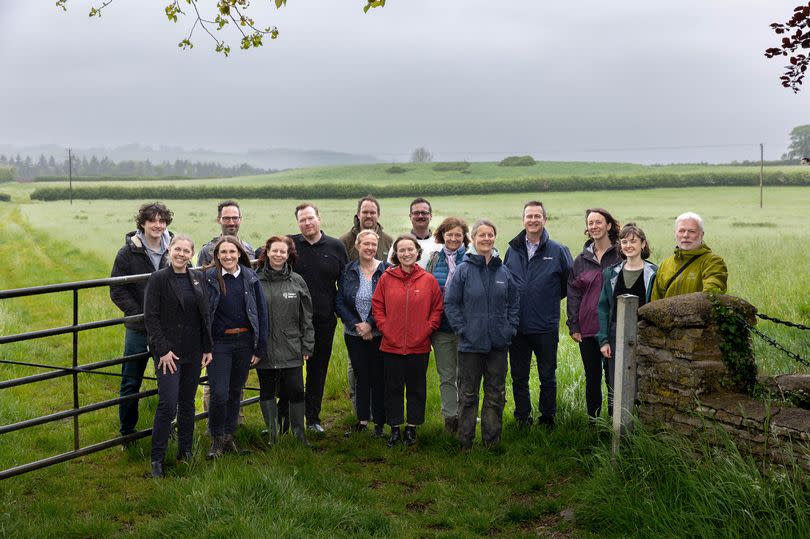West Country's biggest new forest in a generation being planted

A vast expanse of farmland in Somerset is set to be transformed into a forest, thanks to a £3.85 million loan from a local bank secured by environmentalists. In an ambitious project near Compton Dando, just a stone's throw from Whitchurch and Keynsham, over 100,000 trees will take root alongside shrubs and the establishment of new wildlife habitats.
The Bristol-based charity Avon Needs Trees has acquired a significant 422-acre plot near the village with visions of creating the most extensive new woodland area the West Country has witnessed in decades.
Wick Farm, a historic family-run estate for two centuries, is the chosen site for this ecological endeavour. Avon Needs Trees plans to cultivate a sprawling nature reserve there, featuring wetlands, extensive hedgerows, a burgeoning forest, and grassland teeming with diverse species.
Read More - Frozen in time Somerset town that looks like it hasn't changed in 600 years
Read More - Metro Mayor Dan Norris on why he wants to unseat Jacob Rees-Mogg
Visitors will be welcomed to explore the soon-to-be-established Lower Chew Forest. "The Lower Chew Forest will have huge significance to our region, particularly as we have just 7.8 per cent woodland cover in the West of England, which is critically low compared to 13.3 per cent average across the whole of the UK," explained Dave Wood, the chief executive of Avon Needs Trees, reports Bristol Live.
"Our plans will bring a huge range of benefits to nature and our communities, including helping to tackle the climate emergency, improving biodiversity connectivity and providing a place for people to volunteer, learn and connect with nature," he added.
The presence of a vast forest upstream on the banks of the River Chew and its tributaries will act as a natural buffer, aiding in flood prevention further downstream in Keynsham, where the Chew merges with the River Avon, and extending into Bristol itself.
Since its inception five years ago, Avon Needs Trees has planted over 35,000 native trees around Bristol, so an additional 100,000 will nearly triple its total count in one fell swoop.
"When put together with adjoining woodland, it will be bigger than the Downs ( Clifton and Durdham) and Leigh Woods in Bristol, and twelve times the size of Royal Victoria Park in Bath," a spokesperson for Avon Needs Trees said. "The magnitude of this woodland project is quite frankly immense, and holds major significance for climate action and nature recovery in our region."

The funds to purchase the farm were primarily sourced from a loan from Bristol-based Triodos bank - amounting to £3.8 million - as well as a crowdfunder from the Avon Needs Trees charity, which raised more than £171,000, supplemented by funds from the Forest of Avon through its Trees for Climate land acquisition fund, backed by Defra's Nature for Climate fund.Laura Rumph, the senior relationship manager for nature, food and resource at Triodos Bank, expressed that the project aligns perfectly with the bank's ethos."
Our work on models for investing in nature restoration projects means we can take an innovative, flexible approach to supporting projects like these," she explained. "Recognising that collaboration is key, we were able to find ways for public and private funding to work together, tailoring a bespoke model to allow the project to scale.
""As firm advocates of the critical role the financial system has to play in supporting nature and reversing biodiversity loss, we're proud to support what is arguably the most extensive charity-driven Biodiversity Net Gain initiative in the UK to date and hope this inspires other projects on this scale in the South West and beyond," Rumph concluded.

 Yahoo News
Yahoo News 
